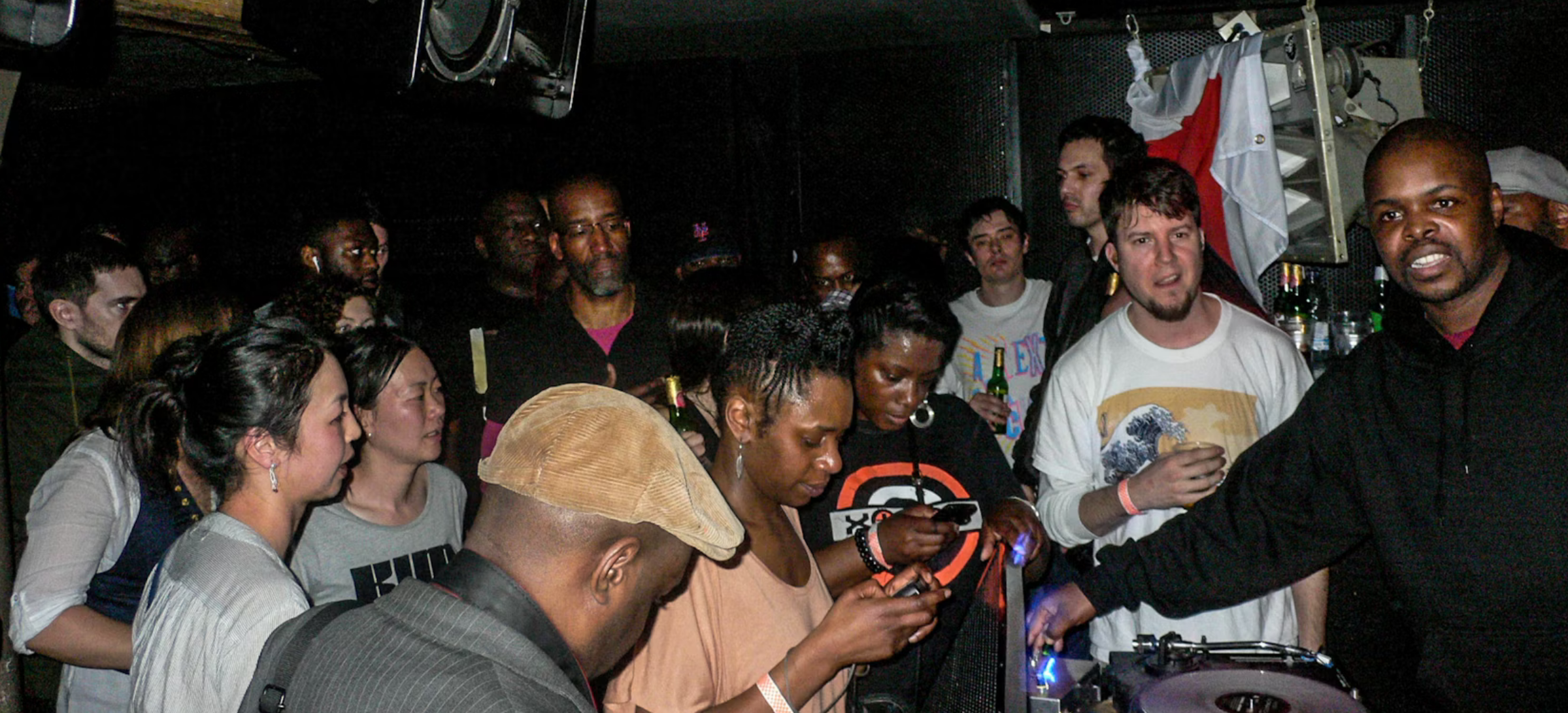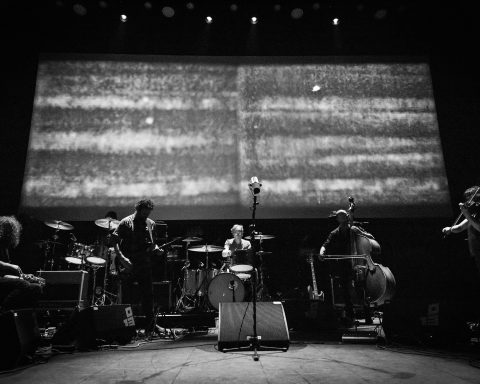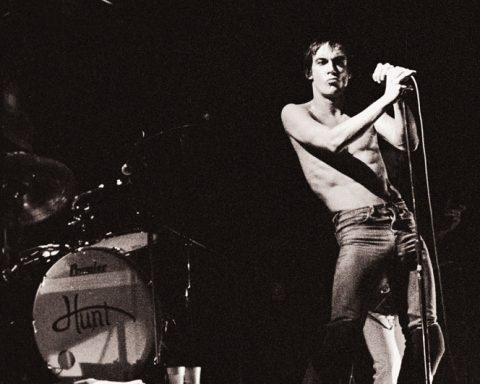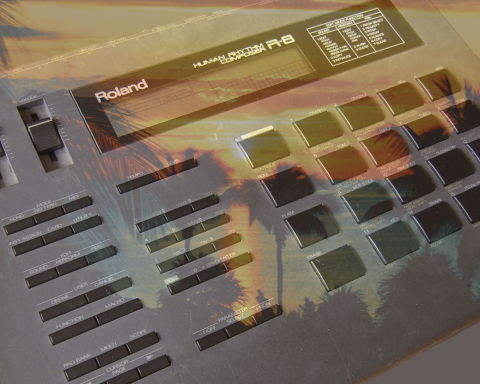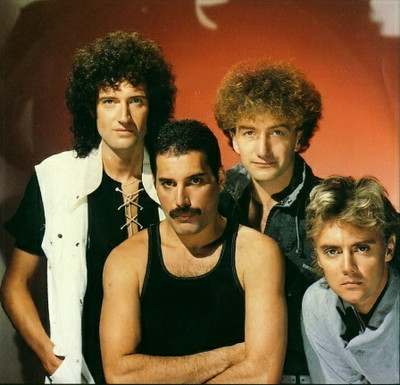Born in West London in the mid-to-late ’90s, broken beat was created by a community of producers with roots in the capital’s various club scenes, whether drum and bass, house, jazz, techno, or hip hop. Fusing these sounds with everything from jazz-funk and fusion to spiritual jazz, Afrobeat, dub, and Latin, these sonic pioneers created a new sound defined by syncopated rhythms, heavy bass, and shifting time signatures.
The breeding ground for this new music was CoOp, a steamy Sunday night club founded by a collection of the scene’s main players. There, the music gestated with dubplates tested and refined for a loyal crowd of dancers. Let’s look at some foundational records that continue to influence broken beat producers today.
A Shift to Sampling
While DAWs were the tools of dance music producers at the time, relatively affordable hardware samplers like the S950 and the Roland JS-30, as well as the SP-1200 drum machine/sampler dominated the scene for broken beat pioneers.
Used with the analog synths and electronic pianos of their jazz fusion heroes, these were the building blocks of broken beat. “Everything had to be self-taught; there weren’t DJ music colleges or learning from videos online or terabyte hard drives with a thousand drum samples,” broken beat pioneer IG Culture said in 2018. “It was mostly trial and error. We just worked with what we had, which more than likely would’ve been a primitive 20-second sampling keyboard.”
Playlist
Groove Now/New Goya by New Sector Movements (1997)
A seminal record of the scene, IG Culture’s “Groove Now/New Goya” 12” was released on a new label out of Ladbroke Grove, West London, called People Records, a vital hub for broken beat. “I remember IG bringing those first recordings in,” label co-founder Mike Slocombe revealed in 2021. “We had a little DAT player in the corner, and they blew us away. They were just very different from what else was around.”
These tracks featured Bembe Segue, whose future jazz vocals graced many a broken beat record. “It started with this idea of our own version of Roy Ayers’ Ubiquity,” IG Culture recalled. “I was also listening a lot to Herbie Hancock’s Man-Child LP and all the George Duke fusion stuff. So, of course, when I was doing the music, it was my take on those records, but it always came out as something different.”
The All New Ummm Pt4 by Likwid Biskit (1998)
“We were all in creative mode at the time and were creating all these personas and characters,” IG Culture recalled of the mysterious monikers that appeared on those early People 12-inches. The most prolific of these projects was Likwid Biskit, created by multi-instrumentalist genius Kaidi Tatham, who appeared on many early broken beat records.
Taking inspiration from everywhere, from Fela Kuti and Headhunters to Carl Craig, but creating something that could only have come from West London, they debuted with “Complete Worries/Senor Yesterday” in 1998. Still sounding like the future today, their follow-up, “The New Ummm,” was an early broken beat at its most sonically advanced.
Bring Me Down (Groove Theory) by Soul Tuition (1997)
Orin Walters was another pioneer of broken beat, working under numerous names, but best known as Afronaught. He had begun making Chicago-influenced house tracks before hearing a record that would change his outlook on music. “Masters at Work’s ‘The Nervous Track’ came out, and that was it,” he said in 2018. “After that, my productions started changing, and I went from doing 4/4 house to using new rhythms.” The result was records like “Bring Me Down” by Soul Tuition, recorded with Scott Clifford and Kaidi Tatham.
The Future Ain’t The Same As It Used 2 B by Neon Phusion (1999)
After People Records and IG Culture’s Main Squeeze, the London label most associated with broken beat was Laws of Motion. The label launched in 1997 with a 12-inch by Neon Phusion, AKA Orin Walters, Alex Phountzi, and Kaidi Tatham. They followed it with one of the great LPs of broken beat featuring the vocals of Bembe Seque and Melissa Browne. An early production of the Bugz in the Attic collective, The Future Ain’t The Same As It Used 2 B, was recorded on an eight-track recorder at Walters’s home studio. “The album was the result of many days and nights sampling everything from Milt Jackson and Azymuth to Weather Report and Herbie Hancock,” he later recalled.
Transcend Me by Afronaught (2001)
With its cascading chord changes and serious analog keys from Kaidi Tatham, “Transcend Me” was elevated by the future jazz vocals of Melissa Browne and a trio of female backing singers. A resequenced sample of a drum break from Weather Report worked around Tatham’s Rhodes and Browne’s vocals. It first aired at CoOp in the winter of 2000. “You’d go straight from the studio to CoOp and try the tracks out on the floor, then take your mental notes back to the studio and tweak the mix,” Walters said.
Got Me Puzzled by Kaidi Tatham & Dego (2003)
Dennis “Dego” McFarlane was responsible for two of the biggest CoOp anthems in Da One Away’s “Trash Da Junk” (with Kaidi Tatham) on Main Squeeze and “Hold It Down” as one half of 4 Hero. As well as co-founding CoOp, he formed 2000 Black as a subsidiary of Reinforced Records, the drum & bass label where broken beat producers like Seiji and Mark Force began. 2000 Black was home to Dego monikers like Pavel Kostiuk and Cousin’ Cockroach, as well as future broken beat stalwarts like Domu. Released in 2003, “Got Me Puzzled” was a typically sophisticated production from the duo once called the “Gamble and Huff of broken beat.”
Feed The Cat by Agent K (2002)
Named the “UK’s Herbie Hancock” by BBC Radio DJ Benji B, Tatham brought his jazz keyboard licks to various scene-defining records. He was also a master flutist and inventive percussionist who gave a 21st-century slant to the music of his heroes like Herbie Hancock and George Duke. Despite his involvement in many early broken beat projects, he would come through as a leader only with his Agent K album from 2002. Released on Laws of Motion, Feed the Cat crossed broken beat with boogie, spiritual jazz, and Brazilian music.
Safety In Numbers by Numbers (2001)
Young Disciples producer Dilip Harris, AKA Demus, was one of the co-founders of CoOp and something of an unsung hero of broken beat. Safety In Numbers came out on his long-time collaborator IG Culture’s Main Squeeze in 2001. It came out a year after Two Banks of Four’s album City Watching and featured his partners in the project Rob Gallagher of Galliano and vocalist Valerie Etienne, AKA Jean Caramouce, alongside guests like singer Carleen Anderson under her Mardou Fox moniker. While Numbers’ only LP slipped out quietly at the time, it stands up as one of the great jazz-rooted broken beat albums.
Transitions/Twilight by Mustang (1999)
While broken beat was a resolutely West London sound, it soon grew tentacles that reached across Europe. From Lausanne, Switzerland, Alex Attias cemented relationships with the owners of People offshoot Goya Distribution during visits to CoOp. A vital hub for the scene where many of the leading players’ studios were based, Goya handled Alex’s new label Visions alongside other European labels like Archive out of Italy. Released on the label under his Mustang moniker in 1999, “Twilight” was a Brazilian-infused future jazz track that anticipated his later releases for Michael Reinboth’s Munich-based Compost.
Theme For A Broken Soul by DJ Rels (2004)
“I made that DJ Rels broken beat stuff after going to the CoOp club in London and connecting with those cats over there,” eclectic hip hop/jazz producer Madlib told Stones Throw Records in 2005. His homage to the underground scene might have been short-lived, but Theme For A Broken Soul was an interesting addition to his genre-bounding oeuvre. He created the album using some of his favorite analog machines. “Just these little box machines, like the SP-606. I like the 606 ‘cus it has a gang of effects on it,” he told Stones Throw. “I like to move quickly, and these little boxes are easy to use.”
Booty La La by Bugz in the Attic (2003)
The Bugz in the Attic collective included all three members of Neon Phusion alongside broken beat originals Seiji, Daz-I-Kue, and G Force. “Working with all these different people from different scenes all looking to create something new was really exciting, whether it was Kaidi from the jazz side or Seiji and G Force from the drum and bass,” Orin Walters told me. The closest broken beat got to infiltrating the mainstream was through “Booty La La,” which reached the top 50 of the UK Singles Chart in 2003. Check anything on Bugz’s Bittasweet label or works by the various Bugz members.
